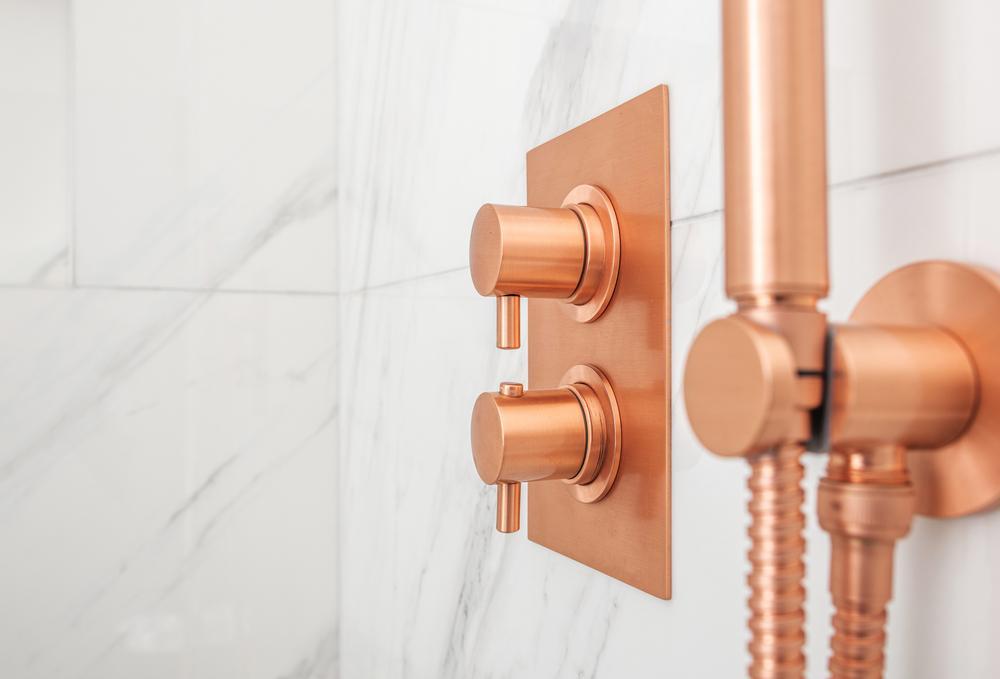When it comes to your shower, there are a lot of different components that come together to make it work. One of the most important (and often overlooked) components is the shower valve. In this guide, we’ll break down everything you need to know about shower valves. By the time you’re finished reading, you’ll be an expert on all things shower valves!

What is a shower valve?
A shower valve is a component of your shower that controls the flow and temperature of the water. They are located behind the shower wall and are usually either concealed shower valves (built into the wall) or exposed shower valves (mounted on the outside of the wall).
They come in a variety of different styles, but they all serve the same basic purpose: to turn the water on and off and control the temperature. Some common types of shower valves include thermostatic valves, pressure-balancing valves, and diverter valves.
Thermostatic valves are perhaps the most common type of valve; they maintain a consistent water temperature by mixing hot and cold water together. Pressure-balancing valves help to prevent scalding by maintaining constant water pressure, even if someone else in your home turns on the sink or flushes the toilet (which can cause sudden changes in water pressure). Diverter valves allow you to route water to multiple outlets, such as a handheld shower head and body jets.
The Importance of Shower Valves
Shower valves play an important role in both the function and safety of your shower. As we mentioned before, thermostatic valves help to maintain a consistent water temperature, which can help to prevent scalding. Pressure-balancing valves do likewise by maintaining constant water pressure; this helps to prevent sudden changes in temperature or pressure that could lead to scalding.
In addition to safety, another reason why it’s important to have a properly functioning shower valve is simple comfort. Nobody likes being jolted by a sudden change in temperature or water pressure while they’re trying to relax in the shower! By having a quality valve in place, you can ensure that your shower experience is as comfortable as possible.
Frequently Asked Questions
Now that we’ve gone over the basics of shower valves, we will answer some of the most frequently asked questions about these important components.
How Often Should I Replace My Shower Valve?
The lifespan of a typical shower valve is about 10 years. However, this can vary depending on the type of valve and how well it’s been maintained over the years. If you’re unsure about whether or not your valve needs to be replaced, it’s always best to consult with a professional plumber for their expert opinion.
How do I know if my shower valve needs to be replaced?
There are a few signs that may indicate that your shower valve needs to be replaced, such as:
- Water leaks: If you notice water leaking from your shower valve, it’s definitely time for a replacement. Not only is this a waste of water, but it can also lead to costly damage to your home.
- Difficulty controlling the water temperature: If you find that you can’t seem to get the water temperature just right, or if the water temperature fluctuates unexpectedly, it may be due to a problem with your shower valve. Replacing the valve should take care of the issue.
- Strange noises: If your shower valve starts making strange noises, such as hissing, dripping, or banging, it’s a sign that something is wrong. In most cases, replacing the valve will take care of the problem.
Can I replace my shower valve myself?
While it is technically possible to replace your shower valve yourself, it’s not recommended unless you have experience with plumbing. Replacing a shower valve is a fairly involved process, and if it’s not done correctly, it can lead to serious problems, such as water leaks. If you’re not confident in your ability to replace the valve, it’s best to hire a professional plumber to do the job for you.
Final Thoughts
As you can see, there’s a lot more to know about shower valves than most people realize! We hope that this guide has given you some helpful information that you can use when it comes time to replace your own shower valve. Remember: if you’re ever unsure about anything, don’t hesitate to reach out to a professional plumber for assistance. Thanks for reading!
Image source: depositphotos





